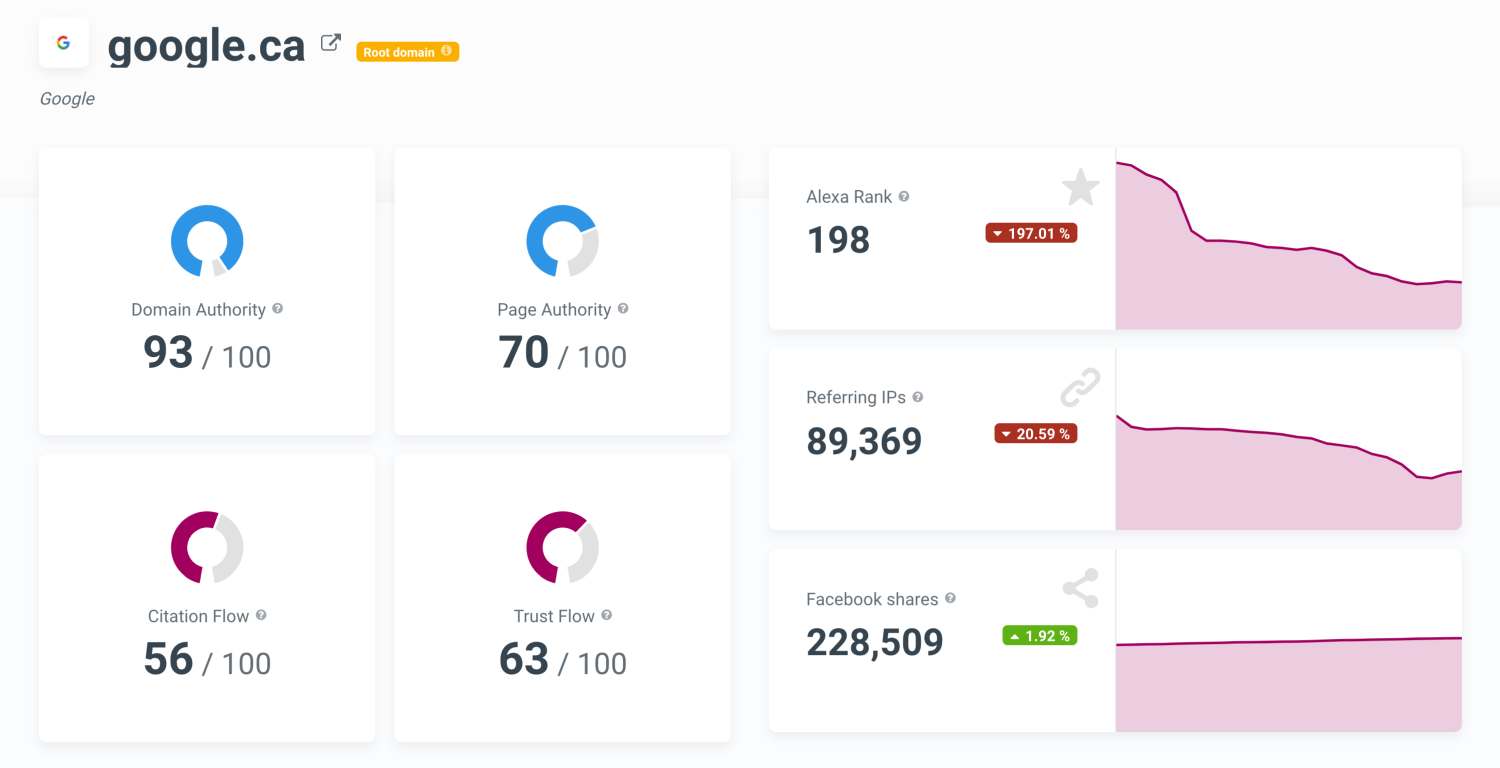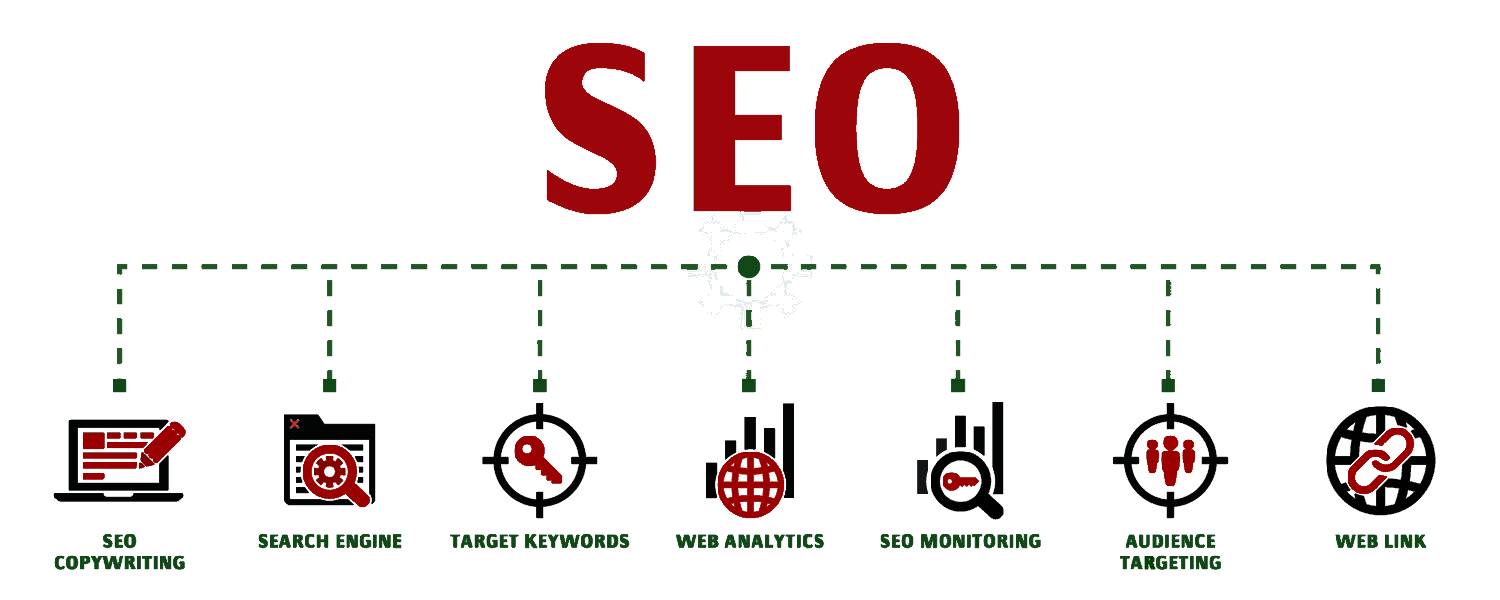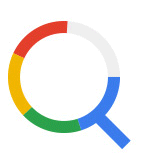Once Google or another search engine knows your website or post exists, its’ bots crawl the site and rank it. Off-page SEO is all about pleasing the Google bots or spiders that crawl the site. That is why Off-page SEO is critical. The difference between off-page SEO and on-page SEO is the difference between what a human sees and what a bot sees. On-page SEO is all the things that you find ON your site – Content, photos, videos, etc. Off-page SEO is all about signals – links, brand relationship, metrics, domain authority, how your website fits into your category or market, deep linking, internal and external linking, and a bunch of other items Google never mentions. Keep Reading, and we will make sense of all the marketing and site engineering terms.
Why is Off-Page SEO Important?
Google looks at several things when it ranks a site. One thing that is critical to Google is user experience, and they don’t mean just people who are searching the internet.
They involve everyone who visits your site either directly or via a link to your content on someone else’s site. It is that junction – the link – that crosses over from on-page SEO to off-page SEO.
The bots crawling your site are looking at how people value the content, the site, and their reaction. They measure that reaction via signals. Here’s how:

The Content
If you have good content, people link to it. For example, you’ve written a library of wonderful blogs and other sites are linking to your posts every day. Google looks at this and says, “Wow, People LOVE this site.” Boom! They will most likely elevate your rank in the SERPs. That’s good because more people will find your site and enjoy your content. In short, Google thinks your website is an authority, and it came to that conclusion based on signals such as:
The number of backlinks back to your site
How long people are staying on a page or blog
Social signals and interactions
Local and relevant directory listings and citations
Those points refer to off-page SEO. Setting up off-page SEO Sounds easy right? Yeah, it’s a bit more complicated. Google looks at each signal, and then weighs its value and then weighs those outcomes in comparison to your competitor’s site and other sites in your niche. That is how a search engine determines where in the SERPs the site ranks.
The Data
The value of off Page SEO is all about:
Credible Signals – Backlink Outreach
Website Interactions – Webpage metrics
Whether or not your site has a Domain Authority
Internal Linking, Deep Linking, and External Linking
All of these items and a few others, such as alt-attributes and rich media, for example; these are items which Google uses to determine the credibility of a site. Part of the measure is about who is linking to your website and how well ‘they’ rate in Google.
The content that other websites link to is your content / on-page SEO. Backlinks from guest posts, sponsored posts, directory listings, and many more similar methods are all part of off-page SEO. However, make no mistake that both are important, and both work in tangent. Keep reading to learn more about Calgary off-page SEO and how your site ranks.
What is Domain Authority?
Domain authority is two things. First, it is how well visitors and bots receive the site – a measure of the quality of your on-page SEO in terms of how visitors to your website react to what they find there. Domain Authority also means the quality of a site that links to your content, which is an off-page SEO metric. Below gives you a closer look at what off-page SEO domain authority means.

Domain Authority follows three complicated steps
Communicating with current and potential customers regularly is always important. Keeping your name in front of clients reminds them of the relationship and encourages site visits. Newsletters are a cost-effective strategy to build and strengthen relationships with customers. This is also indirectly related to off-page work!
Site metrics - The measure or data of on-page SEO and off-page SEO
Metrics are data about your site that include bounce rate and dwell time. Both are a measure of how well people react to your content, site construction, etc. A high bounce rate is a low dwell time, which means people are not finding your site very helpful. A low bounce rate correlates with a higher dwell time and indicates that people find your website useful. They are both measured against the volume of searches and clicks. Googlebots are looking to see if people are staying on your site longer? If so, you have a favourable dwell time and a low bounce rate. Are they skimming the surface or diving deeper? If they are diving deeper, they are finding your content engaging.
Metrics are tools that rate on-page SEO factors, but are considered off-page SEO work. These concepts are also about the Sales Funnel – The vast majority of people are at the top of the funnel and looking for tools to help them solve their problems. The middle section is for people who think your service or product may solve their problem, and they (Dive Deeper) to find more information. The bottom of the funnel are people who are ready to buy. Where people “dive” — this process counts as dwell time and bounce rates drop. These are both considered Off-Page SEO and measures that tell you how well your site is doing.
The Age of your Domain is also a factor.
You don’t have a lot of control over this, but you want to consider this as well. It will be harder for you to outrank a site that has an old domain – The Calgary Hearald, or The BBB, etc. These types of sites were here when the internet was young. You can use that information to your advantage by seeking backlinks from sites that have a long and positive domain history. When off-page SEO is good, a young site can outrank an old domain.
Anchor Text
Link Text is another thing you don’t have much control over, but it matters. Backlinks are links to your site from another site’s content. Google wants to know what that linking site uses as an anchor. Is it a keyword? Is it a CTA? Is it a Photograph? Google weighs these differently. Sometimes, the linked word or phrase related to the quality of your On-Page SEO, but their presence is entirely Off-Page. We also call this deep linking, and Google likes it when deep links are to a blog post or article. They admire links to photographs, but not so much to sales pages or conversion content.
The Value of Linking
One cornerstone of off-page SEO is linking. Google rates links in different ways. How old the link is, where the link occurs on the other’s website, is the link organic, how the linking site ranks, etc. Again, this is how off-page SEO relates to on-page SEO. Quality content that is authoritative with well-researched keywords that apply directly to your niche, market, or domain is all on-page SEO, and each will impact your off-page SEO. That is why web design and propagation must consider both.

Other types of linking also occur. Mostly, we mean social signals. The social platforms that Google has access to matter the most. For example, how many likes you get on a Facebook Post is not crucial to Google because Google does not see Facebook “likes.” If you have a blog and your social stats are part of your blog matrix, then those “signals” matter – Shares, Tweets, Pins, etc. Google can see those. Pinterest is available to Google, so Pins and Saves are essential. If you are trying to blend social media with SEO, you must focus on those attributes that Google can see.

A “Signal” is a notice to Google that something has occurred on your site – A link, tweet, etc. Off- page SEO is all about signals. The better the quality of that “signal” the more positive the response by Google and other search engines.

While off-page SEO is about pleasing the machines – spiders, and bots – it is also a reflection of the human side of SEO and relates directly to on-page SEO. It is also perhaps the part of SEO that people deal with the least. Setting up good off-page SEO is involved, and the results may take some time to emerge, especially when trying to correct the SEO of a site. The complexity of off-page SEO makes it all the more critical as it may be the most significant factor regarding the poor ranking of a website. How does your off-page SEO stack up?

The question for many site owners is how to improve off-page SEO. The answers to that question change with every site. You can learn more about how your website ranks in off-page SEO by reaching out to our team. We offer a more site-specific approach to Calgary off-page SEO services so that you can see what needs improvement.
